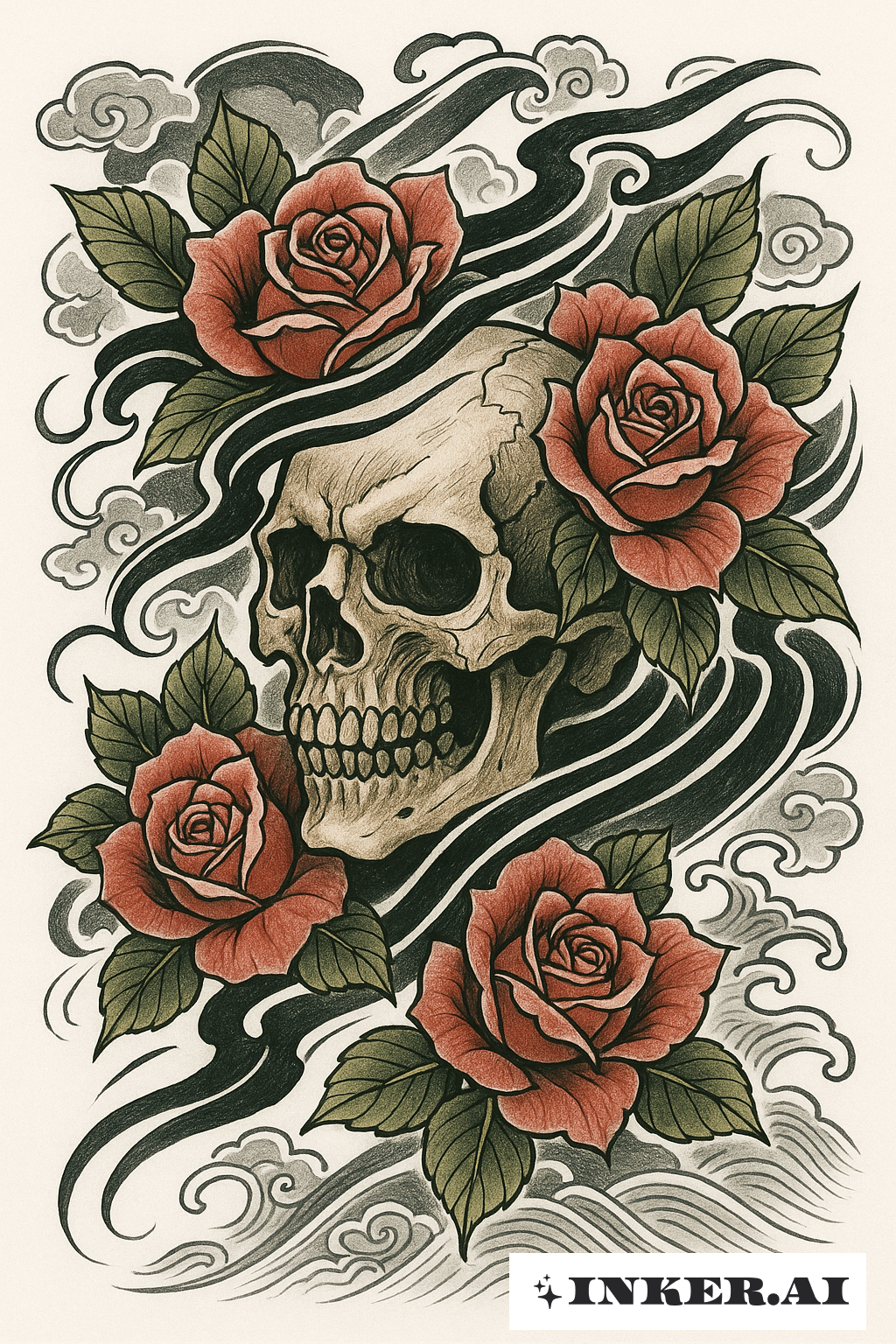Cultural Meaning Of Japanese Totenkopf Amidst Wind Bars And Roses Tattoo Design
The Japanese tattoo style imbues the skull and roses with depth and meaning, symbolizing the delicate balance between beauty and mortality. The skull, or Totenkopf, traditionally represents death and remembrance, but in this context, it is harmonized with elements that depict life and change. In Japanese culture, wind often symbolizes grace under pressure or adaptability, depicted here through the wind bars that traverse the skull. The roses lend beauty and love, serving as a reminder of the transient nature of life and the importance of cherishing moments of beauty amidst our own mortality. This Totenkopftattoo idea is not just about embracing one's own mortality but also about understanding and appreciating the beauty found in life’s fragility, an understanding deeply rooted in Zen philosophy. The combination of these elements invites reflection on life's cycles and the duality of existence.
Design Inspiration Of Japanese Totenkopf Amidst Wind Bars And Roses Tattoo Design
The inspiration for this tattoo lies in the blending of Eastern and Western artistic themes. Drawing from the rich symbolism of Japanese art and the evocative imagery of European memento mori traditions, this design combines the Japanesetattoo style's appreciation for flowing natural elements and boldness with the stark beauty found in the Totenkopftattoo idea. This blend creates a narrative that challenges the wearer and onlooker to consider the beauty in the life-death continuum, a concept inherent in both cultures.
